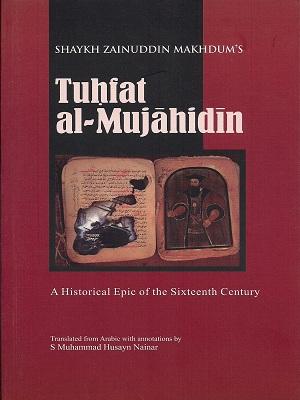Tuhfat Al-Mujahidin: A Historical Epic of The Sixteenth Century

Tuhfat Al-Mujahidin: A Historical Epic of The Sixteenth Century
Author :
Interpreter :
Publisher :
Number of volumes :
0
Publish number :
First
Publication year :
1998
(0 Votes)

(0 Votes)
Tuhfat Al-Mujahidin: A Historical Epic of The Sixteenth Century
Tuhfat Al Muahidin Fi Ba’d akhbar al Burtughaliyyin – Tribute to the Holy Worriors in respect of a brief account of the Portuguese. First written in Arabic in the late sixteenth century, Tuhfat al-Mujahidin is a pioneering historical work dealing with the struggles of the Malabar Muslims in southern India against the Portuguese colonisers’ encroachment in India, and the rise of Malabar as a medieval naval force under the Zamorin of Calicut. Based on the author’s own first hand information of events and what he could gather from reliable sources, it was written to motivate Muslims for the struggle against the invading Portuguese. Thus the republication of this anti-colonial manifesto could not have been more timely at a time when Muslims continue to be the only obstacle to the Western imperialistic ambitions. This translation of the Tuhfat is extensively annotated with more than 200 notes explaining local backgrounds and clearly identifying the names mentioned in the original Arabic work. The Tuhfat is compulsory reading for anybody trying to learn about post-Cordova episodes of Muslim history. Its author, the sixteenth century’s Shaikh Zainuddin Makhdum was from the renowned Makhdum family from the town of Ponnani in Malabar, northern Kerala. He rose to become a leading Islamic scholar, spending ten years studying in Mecca, where he also joined the Qadri order of Sufism. On his return to his native Malabar, he spent almost four decades teaching at the central mosque in Ponnani, then a major centre for Islamic studies in southern India. He also served as the envoy of the Zamorins, the Hindu rulers of Calicut, to Egypt and Turkey.






